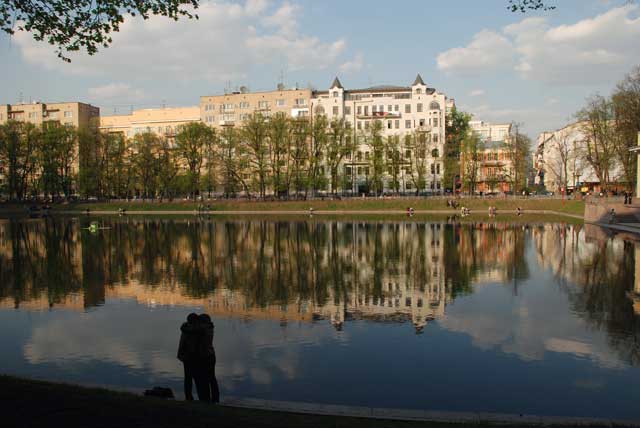
Your support helps us to tell the story
From reproductive rights to climate change to Big Tech, The Independent is on the ground when the story is developing. Whether it's investigating the financials of Elon Musk's pro-Trump PAC or producing our latest documentary, 'The A Word', which shines a light on the American women fighting for reproductive rights, we know how important it is to parse out the facts from the messaging.
At such a critical moment in US history, we need reporters on the ground. Your donation allows us to keep sending journalists to speak to both sides of the story.
The Independent is trusted by Americans across the entire political spectrum. And unlike many other quality news outlets, we choose not to lock Americans out of our reporting and analysis with paywalls. We believe quality journalism should be available to everyone, paid for by those who can afford it.
Your support makes all the difference.Pretty, low-rise architecture, pleasant and tasteful cafés and lazy summer strolls – it's Moscow, but not as we know it. The Russian capital can be a scary beast of a city, but in Patriarch Ponds it reveals its quieter, more domesticated side. There are no ugly Brezhnev concrete apartment blocks, and only a few tacky recent additions. It all makes for an atmosphere that feels almost Parisian, as the chaos and grime of Moscow are left behind.
The area is named after the head of the Russian Orthodox Church, who once had his residence nearby and had fish for his banquets bred in the waters of the ponds. Nowadays there's only one big rectangular pond, fringed with trees and benches, but the plural name has stuck. In the Soviet era, with everything religious out of fashion, the area was renamed Pioneer Ponds, but Muscovites still referred to it by the old name.
The spot was immortalised in every Russianist's favourite book, Mikhail Bulgakov's subversive The Master and Margarita: on a bench by the pond during a hot summer's day in Joseph Stalin's Moscow, the devil appears as a mysteriously accented foreigner, and engages two good Soviet citizens in an argument about whether or not Jesus Christ existed, before predicting the imminent death of one of them in a tram accident.
Nowadays the area is one of the most desirable in Moscow, though it has retained a certain Bohemian charm. It's "Bohemian" in a very Moscow way, however – your pockets need to be deep to have fun here. Yet the tastelessness of many of Moscow's upmarket haunts is mainly absent. A few garish new luxury apartment blocks have gone up in the vicinity, and you'll still have to dodge the occasional Bentley or Hummer when crossing a narrow street, but for the most part this is still the preserve of the intellectual and cultural elite, not the oil and gas barons. Nowhere exemplifies this more than Klava, the fun little bar where a well-heeled artsy intelligentsia crowd drinks overpriced cocktails in cosy surroundings. The atmosphere is more relaxed, the smiles more genuine and the clothing more tasteful than at other similar establishments – though you do still run the risk of being turned away at the door if you don't look beautiful or interesting enough. Around are a number of great restaurants and cafés – Shafran for Lebanese, Suliko for Georgian and Café Margarita for a Bulgakov-themed Russian feast to the strains of live gypsy music.
If your budget is more peasant than oligarch, there are few better things to do on a hot summer's afternoon than pick up a couple of cold beers from one of the local shops and chill out on the benches surrounding the pond, watching a cross-section of Moscow life go by – from well-to-do wives hurrying to a boutique shoe shop to garrulous babushki exchanging the latest gossip and young indie kids strumming away on their guitars.
In winter, the pond freezes over and becomes a vast skating rink; every evening, hundreds of Muscovites rent skates cheaply and zoom around. Novices beware – an upbringing of spending half the year walking on icy pavements gives Russians an in-built advantage, and if you're not well-practised, you may be disheartened as the natives go flying by, doing acrobatic jumps.
And once you've had enough of pretending you're in Paris, it's just a five-minute walk to Tverskaya, the city's main thoroughfare, where a more familiar Moscow will be waiting to swallow you up again.
Shaun Walker is Moscow correspondent of The Independent
Join our commenting forum
Join thought-provoking conversations, follow other Independent readers and see their replies
0Comments